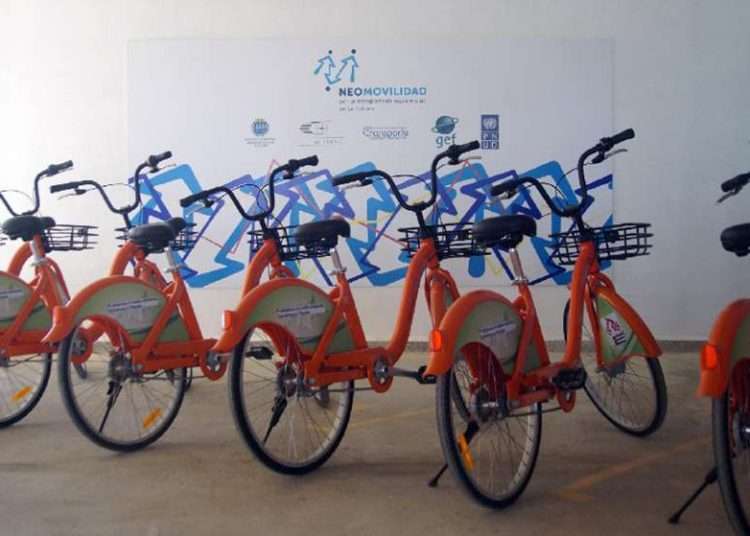The first pilot station of the Ha Bici-Inteliforja Public Bicycle System was inaugurated this Friday at the José Antonio Echeverría Technological University of Havana, also known as Cujae.
The initiative, in the testing phase, comprises a total of 300 bicycles and is part of the Havana Neomobility project for the safe use of these vehicles as an alternative and sustainable means of transportation, according to a report by the Agencia Cubana de Noticias (ACN) news agency.
Inauguración del Sistema de Bicicletas Públicas HA'Bici – INTELIFORJA. @MitransCuba @NeomovilidadDGT @PNUDCuba @gobhabana https://t.co/lcm4WUHTsQ
— Universidad Tecnológica de La Habana (@CujaeRedSocial) January 13, 2023
Among the objectives of the project is to reduce carbon emissions in the Cuban city’s urban transportation and contribute to the mitigation of climate change, adds the report.
The General Directorate of Provincial Transportation of Havana, the United Nations Development Program (UNDP), and the Global Environment Fund are participating in the program.
Its implementation in short stretches of distance will allow alleviating transportation by articulated and rigid buses that cross the city with extensive routes.
Those responsible for the project explained that the services will begin in the modality of rent on demand in the station located in that house of higher studies and in the Reloj Club.
In addition, it was announced that other stations will be added to the system in the localities of Wajay, Abel Santamaría, Fontanar and Entronque de la Cujae, with which the inhabitants of the area between the Boyeros and Marianao municipalities will benefit.
The system that began its structuring two years ago was expected to work before the end of 2022 with mechanical bicycles assembled at the Narciso López Roselló enterprise with a special design and planned maintenance.
Public bicycle system for Havana municipality is put in tender
In the rental on demand, the modalities of bicycle rental will be provided, both from station to station, as well as free routes, with differentiated rates and accessible to the public. Messaging and assisted transportation services for people in vulnerable situations will also be incorporated, the report added.
The proposal has the possibility of extending the service to other universities in the Cuban capital, such as the Enrique José Varona Pedagogical Sciences, and the Havana University.
Fernando Hiraldo, UNDP resident representative in Cuba, commented that the Ha Bici-Inteliforja Public Bicycle System will be operated by the Inteliforja local development project, winner of a tender related to this means of transportation. Its function will be carried out jointly with the General Directorate of Provincial Transportation in the capital city.
According to ACN, Hiraldo explained that the debut of this first cycle station contributes to strengthening the ties between the public and private sectors to achieve the United Nations Sustainable Development Goals until 2030.










